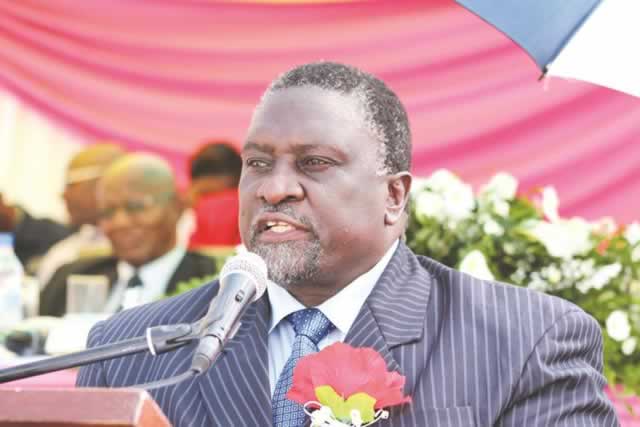Editorial Comment: Chrome miners must aspire for value addition

Vice President Emmerson Mnangagwa has announced that the government has lifted the four-year-old ban on raw chrome exports.
The decision that he announced in Bulawayo on Saturday while addressing a Zanu-PF campaign rally for today’s by-elections, is likely to lift the fortunes of the chrome mining sector that nosedived when the government imposed the prohibition as part of the national agenda to promote value addition and beneficiation of commodities.
“As the government,” VP Mnangagwa said, “we’ve decided to lift the ban on raw chrome exports so that we promote economic recovery. Chrome is found along the Great Dyke from Zvishavane right up to Mutorashanga, cutting across three or four provinces. Following the ban, the chrome sector had 12 companies that were processing chrome ore into ferrochrome. However, not all of them (12 companies) are so viable, some are limping and thus we then decided to lift the ban on raw chrome exports.”
Chrome, which is found mostly in the Midlands province, is one of the minerals along with iron ore, nickel, copper, platinum, gold and diamond that the government declared as strategic because of their high potential for greater earnings if they are value added.
With the benefit of hindsight, we can safely argue that the April 2011 ban was largely draconian. It came as a bolt from the blue without according miners enough time to build local refining capacity. With information that the bulk of the mineral is extracted by small-scale miners, the ban made life difficult for our people at the grassroots as they lack capacity at individual level to invest in anything more than their rudimentary tools. However, the lifting of the restriction should stimulate activity in chrome mining areas as the miners can work and have a market for their ore.
But having noted that the ban was draconian and came without adequate notice, we have to state that there is nothing really bad about banning raw exports of chrome, or any mineral for that matter.
Yes, some might say that the government is going back on its broad value addition and beneficiation agenda, but we see the removal of the ban as an opportunity for authorities and miners to come up with a more nuanced approach that, on one hand, is sensitive to the viability of chrome miners, and on the other not losing sight of the long-term benefits of value addition.
We want to see more action on the part of the government in encouraging establishment of local chrome refining capacity and miners themselves working hard to invest in beneficiation.
At some point, in the not-so-distant future, we expect to see genuine movement towards local value addition. We say this because we think we have enough chrome deposits to sustain such processing plants. One way through which the small scale miners can achieve this is to form consortia to build smelters or for independent investors setting up the plants with the government creating conditions for the investment to take place, viably.
So our argument is that the lifting of the ban is very good in the short term, but miners must not be too happy about it to the extent of forgetting that by exporting raw chrome, they are spiriting jobs and immeasurable value out of the country, creating jobs and value in countries where the mineral is processed — China, South Africa and much of Europe. Our miners must always know that it is not in the interest of the country for them to continue exporting the mineral in its raw form.
We suggest that if, in the long run, they fail to invest in beneficiation, the government can consider imposing a tax to make raw exports of chrome more expensive, thus unviable.
We have already seen the government imposing a 15 percent tax on raw platinum exports. The value addition goal of the platinum tax is the same as the one we propose on chrome.
We are encouraged that the government did not only lift the raw chrome export ban to leave miners at the mercy of chrome merchants known for imposing abysmal prices, but also, as VP Mnangagwa said, came up with a $100 million facility from China to buy the mineral from small miners at more competitive prices. This means that miners will resume production with a market waiting for them with a lot of money to buy their output at the right price.
Therefore, chrome miners in Shurugwi, Mutorashanga, Lalapanzi and Guinea Fowl who all mine high-grade chrome must be happy, like we are, with the government’s decision to lift the ban on raw chrome exports. However, value addition and beneficiation is what they should aspire for in the long term.











Comments